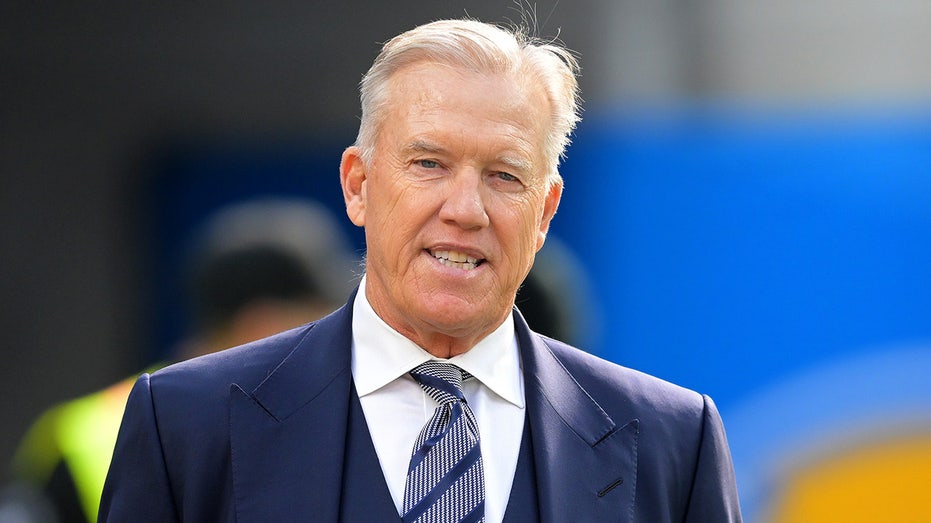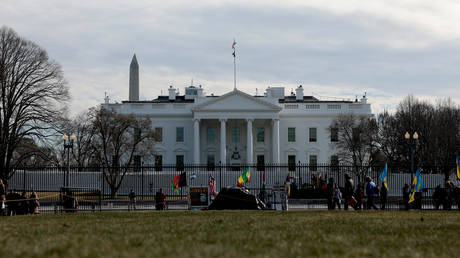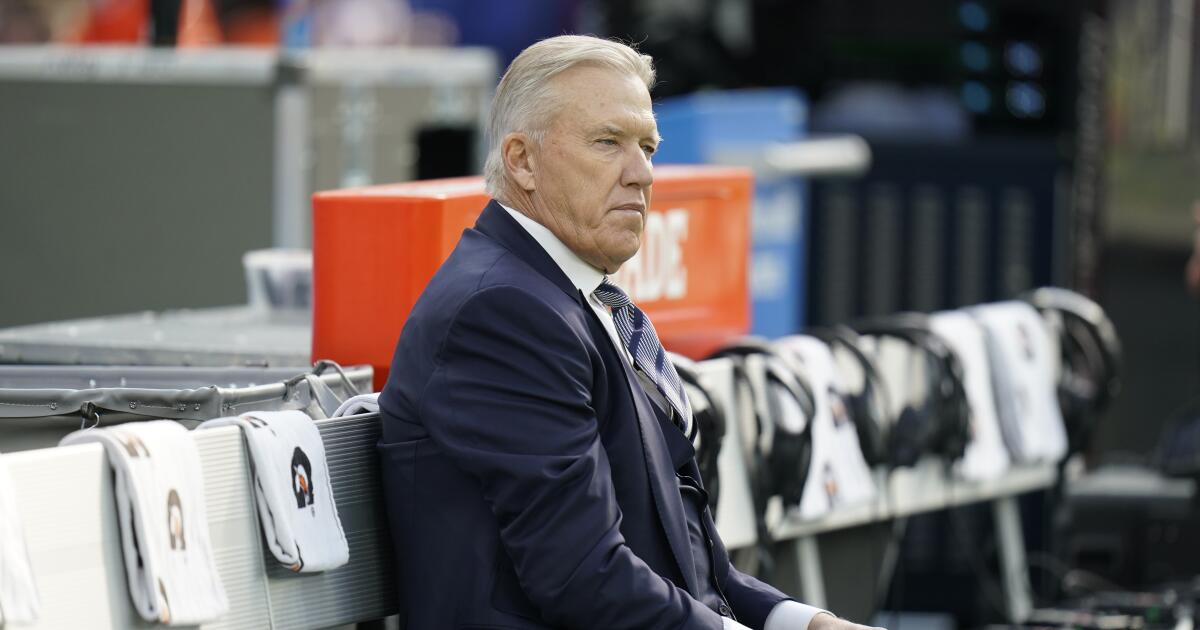Trump's Pick for a Top Army Job Works at a Weapons Company — And Won't Give Up His Stock
Mike Obadal’s plan to keep his stock in Anduril if nominated as under secretary of the Army is a blatant conflict of interest, experts say. The post Trump’s Pick for a Top Army Job Works at a Weapons Company — And Won’t Give Up His Stock appeared first on The Intercept.

Trump’s nominee for under secretary of the Army, Michael Obadal, retired from a career in the Army in 2023, then spent the past two years working for Anduril, the ascendant arms maker with billions of dollars in Army contracts.
If confirmed to the Pentagon post — often described as the “chief operating officer” position at the largest branch of the U.S. military — Obadal plans to keep his stock in Anduril, according to an ethics disclosure reviewed by The Intercept.
“This is unheard of for a presidential appointee in the Defense Department to retain a financial interest in a defense contractor,” said Richard Painter, the top White House ethics lawyer during the George W. Bush administration. Painter said that while the arrangement may not be illegal, it certainly creates the appearance of a conflict of interest. Under the norms of prior administrations, Painter said, “nobody at upper echelons of the Pentagon would be getting anywhere near contracts if he’s sitting on a pile of defense contractor stock.”
Obadal has been a senior director at Anduril since 2023, according to his LinkedIn profile, following a nearly 30-year career in the U.S. Army. While the revolving door between the Pentagon and defense industry is as old as both of those institutions, federal law and ethical norms require employees of the executive branch to unload financial interests and relationships that might create a conflict of interest in the course of their duties.
Obadal’s April 11 financial disclosure letter, filed with the Office of Government Ethics, states “Upon confirmation, I will resign from my position as Senior Director at Anduril Industries” and forfeit his right to unvested stock options. But crucially, Obadal says he will retain his restricted stock units that have already vested — i.e., Anduril stock he already owns. That means he will continue to own a piece of the company, whose valuation has reportedly increased from $8.5 billion when Obadal joined to $28 billion today on the strength of its military contracts, and stands to materially benefit from anything that helps Anduril.
In his ethics letter, Obadal says he “will not participate personally and substantially in any particular matter that to my knowledge has a direct and predictable effect on the financial interests of Anduril Industries” — unless he’s given permission by his boss, the secretary of the Army.
Don Fox, former acting director of the Office of Government Ethics, told The Intercept Obadal’s Anduril shares could pose a clear conflict of interest if he is confirmed. “The general reason an appointee would be allowed to maintain a potentially conflicting interest is because divestiture is either not possible or highly impractical.” Anduril is privately held, meaning shares in the company can’t be quickly disposed of on the stock market.
But Painter, the Bush-era ethics lawyer, suggests that Obadal could liquidate his stake in Anduril through the lively secondary market in its shares. “In the Bush years, we’d just say ‘You’re not going to the Pentagon,” said Painter.
Fox said that if Obadal adheres to what’s in his ethics agreement and recuses himself from anything that touches Anduril, he will stay in compliance with federal law. “That’s going to be a pretty broad recusal,” added Painter, who speculated, “He’s going to have to recuse from any weapons systems that might use [Anduril] equipment, anything having to do with contracts, even competitor companies.”
Fox, who spent decades as a lawyer at the Air Force and Navy, speculated that a vast recusal from budgetary matters “is feasible, but he’s going to have to be really scrupulous about it,” to the point of literally leaving the room whenever Anduril, its capabilities, or those of its competitors are discussed. “Once we get into areas that involve hardware and software, I’d say don’t even be in the room,” he said. “At a really senior level, people are not only looking for what you say but what you don’t say,” Fox added. “It poses a significant risk to him personally of crossing that line, no matter how scrupulous he may be.”
William Hartung, a senior research fellow at the Quincy Institute for Responsible Statecraft who focuses on the U.S. arms industry, describes the situation as “the very definition of a conflict of interest” given the vast business interests between Obadal’s current and new employer. “The fact that the administration and the Congress have accepted this arrangement is a commentary on the sad state of ethics in Washington — an indication that too many of our elected officials won’t even try to take steps to make it harder to engage in corrupt practices,” Hartung added.
As its second-highest ranking civilian at the Army, Obadal will have considerable sway over what weapons the Army purchases, what technologies it prioritizes, and when and how the U.S. wages war. Having a former employee and current shareholder in that position may prove lucrative for Anduril as the company seeks to add to its billions of dollars of federal contracts.
In the past year alone, during Obadal’s time at the company, Anduril announced it was taking over the Army’s Integrated Visual Augmentation System, a troubled $22 billion program intended to provide soldiers with augmented reality goggles and selling the Army components for its rocket artillery systems and a fleet of miniature “Ghost-X” helicopter drones. Anduril is also working on the Army’s TITAN system, a truck-mounted sensor suite, and an experimental U.S. Army’s Robotic Combat Vehicle program.
Last year, DefenseOne reported that the Army’s “unfunded priorities” tech wishlist included “$4.5 million in research and development for Anduril’s Roadrunner-M drone interceptor.” Obadal described that jet-powered bomb drone in a LinkedIn post as “revolutionary.”
The White House declined to comment on the ethics agreement and referred The Intercept to the Office of the Secretary of Defense, which also declined to comment and referred The Intercept to the Army, which referred The Intercept back to the White House. Neither Anduril nor Obadal responded to a request for comment.
Even amid a rightward turn for the tech industry, Anduril stands out for its MAGA-alignment and closeness to the Trump administration of its top executives and investors.
In December, the New York Times reported Trump’s transition team offices were “crawling with executives from defense tech firms with close ties to Mr. Trump’s orbit,” including Anduril. The month before, Anduril co-founder and longtime Trump booster Palmer Luckey told Bloomberg he was already “in touch” with the incoming administration about impending nominees: “I don’t want to throw any (names) out there because I would be happy with all of them.”
The post Trump’s Pick for a Top Army Job Works at a Weapons Company — And Won’t Give Up His Stock appeared first on The Intercept.


















































































